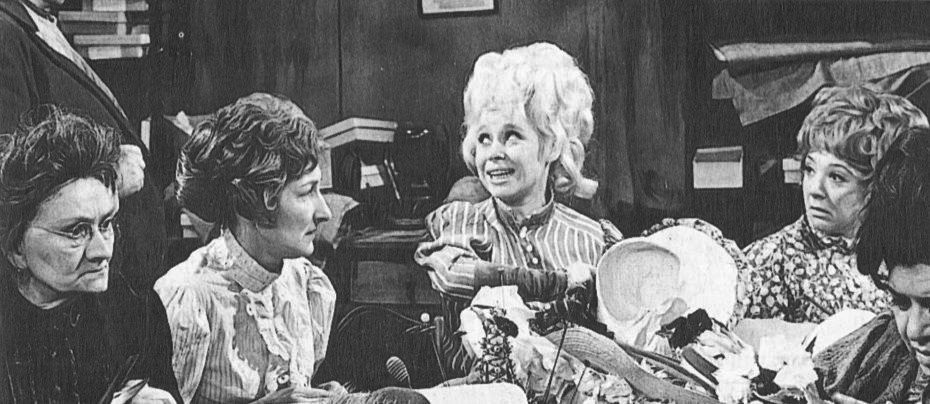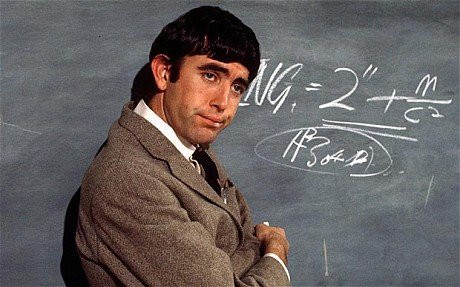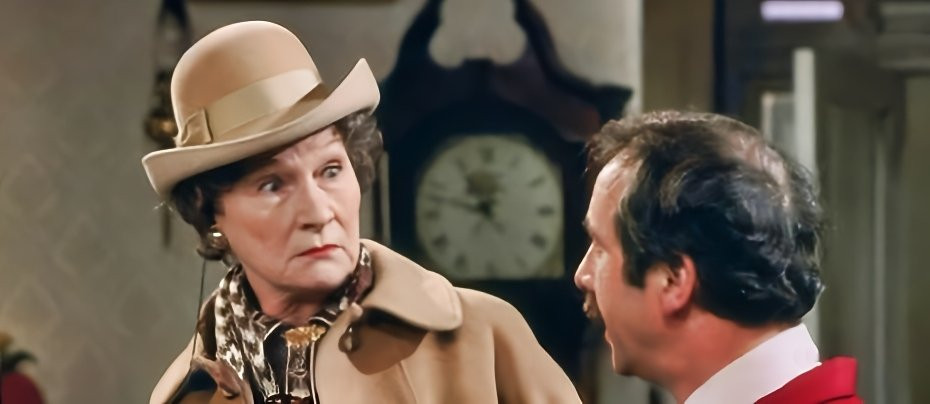
Joan Sanderson
While many television actors find satisfaction in portraying a single defining character, Joan Sanderson had the privilege of playing not one, but two such roles. The second, her guest appearance in a popular sitcom, transformed her into an iconic character within the realm of television comedy.
Her breakthrough came with her role in the long-running sitcom Please Sir! in 1968 playing the role of Doris ‘Rotten’ Ewell, the formidable deputy head of Fenn Street School. In 1979, she played the selectively deaf Mrs. Richards in the Fawlty Towers episode ‘Communication Problems’, wreaking havoc by relentlessly mishearing conversations and causing side-splitting chaos. Her impeccable comedic timing and remarkable ability to elicit laughter with her outstanding ability to convey humour through facial expressions, created a performance that will forever be etched in the annals of television history.
Joan's infamous knack for playing overbearing and opinionated women was in stark contrast to her real-life persona, which was described by those who knew her as gentle, warm-hearted, and exuding a sense of tranquillity.
Joan was born on 24 November 1912 in Bristol. Throughout her formative years, she harboured a deep passion for the performing arts, recognizing it as her true calling, and eventually trained at RADA where every vestige of her Bristolian accent was meticulously erased to the point where she earned teaching diplomas in elocution. After training, she went into Rep, making her stage debut in 1939 at the Shakespeare Memorial Theatre playing Amelia in The Comedy of Errors.
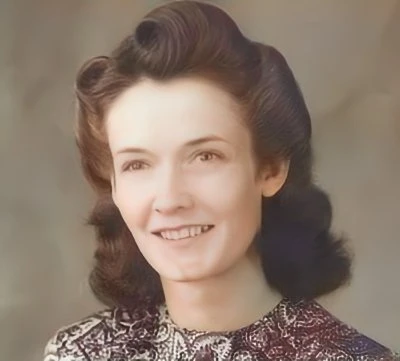
At some period during the Second World War, Joan toured North Africa and Italy entertaining the troops. In 1942, she was at the Garrick Playhouse, Altrincham, playing a maid in To-morrow's Sun, an historic drama on the betrayal of Joan of Ark.
In 1951, television came a-calling and Joan began to pick up a number of small roles beginning with a BBC ‘short’ titled The Secret of the Snowstorm and by the end of the decade she had over 20 small screen appearances under her belt, including 4 episodes of an adaptation of Robert Louis Stevenson's novel ‘St. Ives’. The series also starred William Russell, Roger Delgado and Francis Matthews.
Joan continued touring in Rep for a number of years getting one of her first press notices in 1952 at the New Hull in a comedy titled Love's a Nuisance which also starred Patrick Cargill. Joan was picked out as part of a 'talented cast' that were 'quite equal to all that the flimsy plot was able to provide.' In March 1953, she was in Richard III starring Marius Goring in the title role. According to The Stage's critic, 'Joan Sanderson makes much of the prophetic speeches of Lady Margaret.' In July she was back at Stratford-upon-Avon for King Lear at the Memorial Theatre with Michael Redgrave as Lear.
In May 1954, Money for Jam, a comedy starring Donald Pleasence and Peter Vaughan arrived at the Q Theatre near Kew Bridge in Brentford’ and in June she was at Croydon Rep in Little Foxes. Joan was picked out as a 'powerful actress' who was 'going all out to reveal the essential meanness of the mother.' Edward Woodward also featured in the company. In September she was at Croydon again where she was noted as giving 'a dominating performance.'
In 1956, Joan had an early taste of comedy when she appeared in the Whitehall Farces alongside Brian Rix. She discovered an innate ability to deliver perfectly timed lines and a gift of comedic timing that made her a natural comedy actress.
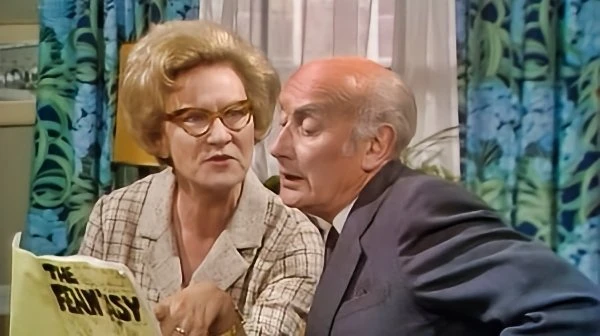
Comedic roles became increasingly common, especially when they called for lampooning a standoffish or no-nonsense authority figure. This was never more clearly displayed than in Please Sir!, as the deputy head Doris, who has an infatuation for the incompetent headmaster Maurice Cromwell.
After Please Sir! finished, Joan went back into theatre, appearing as Miss Prism alongside Irene Handl as Lady Bracknell in The Importance of Being Earnest at the Greenwich Theatre. On television, Joan appeared in a mixture of comedy and drama in shows such as All Gas and Gaiters, Upstairs, Downstairs, Rising Damp and Crown Court. And, of course, that unforgettable role in Fawlty Towers.
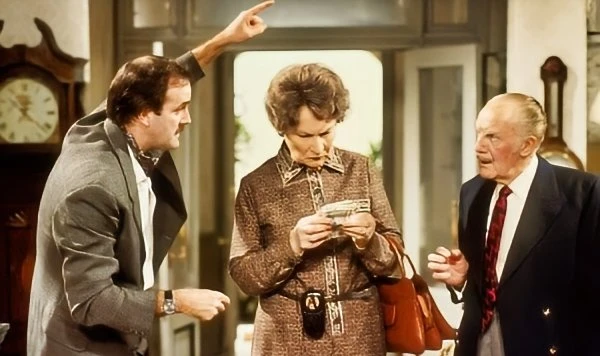
In 1978, Joan returned to being a regular cast member in the sitcom Mixed Blessings, a more progressive comedy exploring the relationship between white a man, Thomas, and his black fiancée, Susan, and its effects on their respective families and neighbours. In 1984, she joined Richard O'Sullivan, Joanne Ridley and Tim Brooke-Taylor in the generation gap comedy Me and My Girl and she starred in After Henry, a gentle comedy series on both radio (1985–88) and television (1988–92), in which she played the domineering Eleanor, mother of Sarah (Prunella Scales), who lives above her in the top-floor flat in Sarah's large house. But towards the end of the last series, her health was fading.
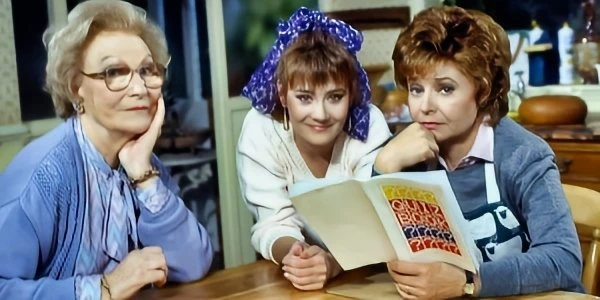
Joan Sanderson died a month to the day after completing her last day of filming on After Henry. Simon Brett, the writer of the series said there could be no replacement for the 'lovable dragon'. "Joan knew she was ill, but she was pleased to do another series. She was 79, even if she'd been in perfect health she couldn't go on forever. I think it's a tribute to how wonderful the theatre is as a profession that people work right up to the end. She was working against terrible odds, but her performance was terrific.
"She was a wonderful lady who was always playing dreadful dragons and personally she was totally gentle and engaging."
A memorial service at St. Paul's Church, Covent Garden was held for Joan on 28 July 1992.
Joan Sanderson, a woman of immense talent, captivated viewers with her ability to bring humour and dimension to every character she played. Her remarkable versatility and commitment to her craft endeared her to audiences far and wide. Today, she remains an iconic figure in British television history, forever etched in the hearts and minds of comedy enthusiasts.
Published on March 9th, 2024. Written by Laurence Marcus for Television Heaven.



